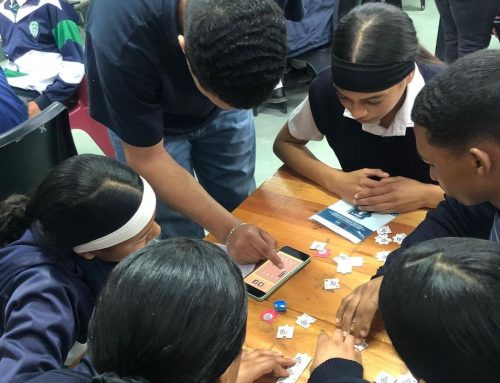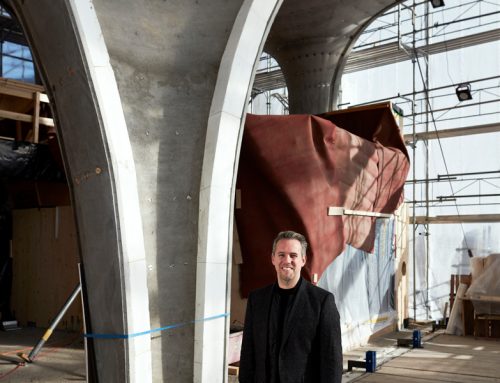(Uhuru is the Swahili word for ‘freedom’; it is a term used throughout Africa.)
Equality, freedom and justice are ideas that are central to any understanding of human emancipation. This was the case for the European Enlightenment, for the American, French and Haitian revolutions and during the struggles for national liberation and freedom in Africa and the Global South.
It was these struggles for freedom that gave birth to the humanities and social sciences from the 18th century onwards. Intellectual innovation and popular struggles for freedom have historically always developed hand in hand.
In Africa, people fought long and hard for freedom during their liberation struggles, yet the promise of emancipation from poverty and oppression for all has not been met. The achievement of human emancipation remains a central, largely unresolved problem on our African continent. It therefore needs to be a prime concern of the humanities and social sciences today, just as it has been in the past.
Established in January 2014, UHURU is a site of critical debate and research for the development of thought about human emancipation and popular experiences of struggle.
UHURU is concerned with rethinking:
• How human emancipation is to be understood today in the 21st century;
• Why the human emancipation project has failed in South Africa and throughout the African continent; and
• How to begin to think an emancipatory future.
Within UHURU, postgraduate and postdoctoral candidates from any discipline within the Faculty of Humanities are addressing these and other questions.
A new cadre of critical thinking intellectuals
UHURU sets out to develop and enable the formation of a new cadre of critical thinking intellectuals from South Africa and Africa. Emphasis is placed on the development of critical thinking black South African and women scholars who will significantly contribute to the human emancipation debate and to the transformation of the South African higher education landscape.
Drive the critical debates and discussions of the day
Universities throughout South Africa require vibrant humanities faculties to drive the critical debates and discussions of the day. It follows that the issues concerning human emancipation need to be at the top of the curriculum. After all ‘the idea of the human’ is the basis on which the human sciences were founded to investigate. The idea of the human is obviously of universal significance and quite distinct from (although always related to) more specific concerns.
UHURU provides a site of thought for the Faculty of Humanities at Rhodes University to discuss, debate and research issues relevant to human emancipation in the context of higher educational institutions where the need for transformation is key.
The Director of UHURU, Prof Michael Neocosmos, emphasises that within this space it is imperative for the humanities and social sciences in South Africa to recognise and understand that we are part of Africa, an understanding that will help to decolonise our institutions of higher learning in general, and to avoid reinventing the wheel regarding post-liberation outcomes in particular.
African research and post- liberation outcomes
The authoritarian trajectory of post-colonial states in Africa, so clearly noted in the work of the great humanist intellectual, psychiatrist, philosopher and revolutionary, Frantz Fanon, should have taught us about potential post-liberation outcomes in this country. Yet the social sciences in particular in South Africa, have, in the main, shown themselves to be dominated by an obsession with exceptionalism, which tends to link South Africa more to the Global North than to the rest of Africa.
Without forgoing our links with Western thought, UHURU extends its intellectual reference points to be more inclusive of those from Africa and the Global South.
Gender in Africa
In the same vein, UHURU places gender and the theoretical work done on gender issues in Africa and the Global South at the centre of its work. For example, research within UHURU explores the possible liberatory features of the matriarchal foundations
of traditional African society discussed, inter alia, by the Senegalese historian, philosopher, physicist and politician, Cheikh Anta Diop and in the work of Nigerian poet, anthropologist and essayist, Ifi Amadiume.
In South Africa, by contrast, the debate on the contradictions between ‘human rights’ and ‘tradition’ has typically been characterised by an emphasis on the former over the latter, as ‘tradition’ has tended to be seen as uniformly oppressive to women. The possibility of rethinking this from within the parameters of African tradition needs to be thoroughly investigated.
The Concept of UHURU
The concept for UHURU originated with Rhodes University Sociology Professor, Fred Hendricks, and the former Vice-Chancellor of Rhodes University, Dr Saleem Badat – now the Programme Director of International Higher Education & Strategic Projects for the Andrew W. Mellon Foundation.
They envisaged a unit that would attract postgraduate and postdoctoral researchers interested in grappling with current ethical, moral and political questions, and with rethinking human emancipation today.
UHURU is such a unit, where postgraduate and postdoctoral researchers can learn from each other, and extend their research beyond the traditional confines of disciplinary learning. Students are brought together in reading groups where they share transdisciplinary texts that all South African and African intellectuals should read, including new and/or alternative thinkers from Africa and other parts of the world.
Collaboration
UHURU has links with a number of universities and research centres in South Africa and internationally. The Unit strongly supports trans-university collaborations and encourages investigation without borders.
Strong partnerships have been established with the Centre for Indian Studies in Africa (CISA) and Wits Institute for Social and Economic Research (WISER), both at Wits University, and the Centre for Humanities Research (CHR) at the University of the Western Cape, amongst others.
All three are also funded by the Andrew W. Mellon Foundation and collaborate on research projects, speaker seminars, academic exchanges and fund-raising initiatives to afford students and academics the opportunity to spend time at each other’s institutes, and at others outside of South Africa.
UHURU and its partner universities in South Africa are constantly working on attracting postgraduate and postdoctoral researchers from the continent and other parts of the world. An important aspect of this is to reverse the trend whereby a considerable number of scholars from South Africa and the continent head for Europe and the United States to pursue their postgraduate and postdoctoral studies.
South Africa strives to attract top researches and to nurture a vibrant academic environment for human emancipation research.
Towards new theories of human emancipation
“It is worrying and terrifying to witness the oppression, inequality and corruption occurring in South Africa, Africa and the world today,” says UHURU Director, Prof Michael Neocosmos.
“At the moment, few new ways of thinking are being provided by intellectuals and even fewer solutions. We seem to be confronted only with questions without answers, so that the youth in particular are unclear regarding a way out of what seems to be a constant crisis.
“In Africa, the emancipation from poverty and oppression that liberation from colonialism and apartheid originally promised all people has not materialised. Uhuru is still elusive; freedom seems unattainable.
Corruption and the enrichment of a few
“In South Africa, more than two decades after the first democratic elections, the ANC government is finding it increasingly difficult to convince people that the struggle for liberation has led to anything other than corruption and the enrichment of a few. This is extremely disappointing for so many South Africans because the achievement of democracy came with so much hope.
“This achievement, which was the product of ordinary people’s efforts, ushered in a new way of thinking about emancipation for the first time on our continent with President Nelson Mandela calling for a peaceful transition to democracy with the participation of all the people,” explains Prof Neocosmos, citing what Nelson Mandela said in Durban in 1990:
“Since my release, I have become more convinced than ever that the real makers of history are the ordinary men and women of our country; their participation in every decision about the future is the only guarantee of true democracy and freedom.”
Up until that point the overwhelming dominant view of how freedom was to be achieved in Africa had been through the barrel of the gun.
The promised emancipation
Millions of young people are now questioning why they have not experienced much of the promised emancipation. They are questioning why racism has not been overcome, why the ANC government is not representing the interests of the majority, why they are denied access to a good education, employment or careers.
“We are seeing the frustration of young people everywhere, including in our universities. They want their lives and their dignity to be taken seriously, which is why we are experiencing the #RhodesMustFall and #FeesMustFall campaigns, the municipal services and education protests, and increasing support for the Economic Freedom Fighters,” continues Prof Neocosmos.
“South Africa is not alone in its experience of such protests. We are seeing protests and uprisings throughout Africa and the rest of the world. We are seeing young people reverting to fundamentalism of a quasi- fascist religious or ethnic nature, whether it is Islamic fundamentalism or fundamentalist Christianity or indeed ‘tribalistic’ Zulu-ness for example.
“In our country, such identitarian fundamentalisms are unfortunately allowed to overflow into xenophobic violence as we witnessed in 2015 in KwaZulu-Natal.”
These are frightening trends because the solutions to humanity’s problems cannot be found by reverting to crude ethnic and identity politics. Rather, the imperative today is for all of us to rethink in universal terms about humanity, democracy and human emancipation.




